A Leader Mother in Rwanda
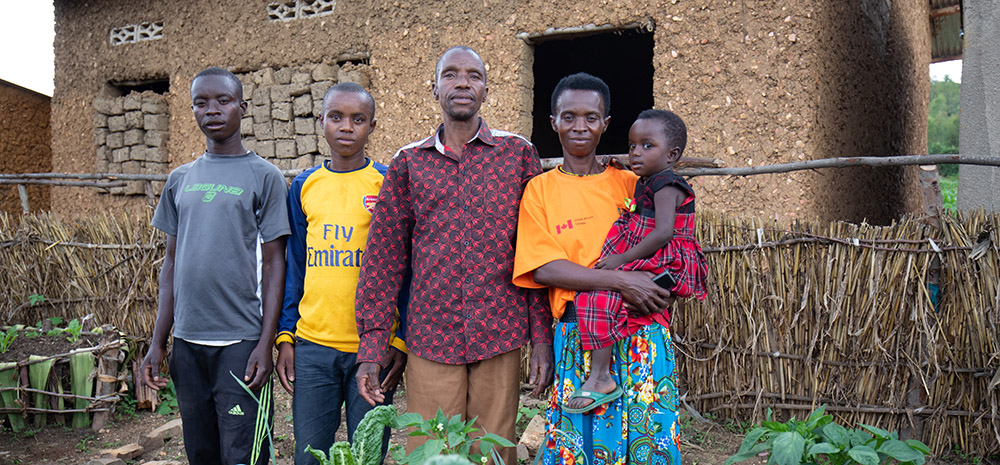
Odette and her family live in the Kayonza District of the Eastern Province of Rwanda. Like most of her neighbors Odette is a small plot farmer.
In many regions of Rwanda, farmers can harvest crops three times a year. Not in Kayonza. Here the rains fall for only about three months every year. Each year the dry season lasts longer and longer. Odette is sometimes able to grow enough food to last her family the whole year. Sometimes they run out of food before the rainy season comes around again.
For the last five years, ADRA Canada has been partnering with ADRA Rwanda on nutritional projects to help different communities in this dry zone learn new agricultural techniques to grow food outside of the rainy season. First was the LEAF project, then the Kuraneza project, and now, the most recent initiative is called the PROMISE project.
“I have never grown vegetables before. On our small farm we have always grown beans, maize and some sweet potatoes. Whenever we could afford it we would buy some vegetables in the market, but we had never thought that we would be able to grow these ourselves. When ADRA announced that they would be running an agricultural training program in our village, I joined up to the group right away.
One of the first things that we were asked to do was choose an individual from the group who would become the “Leader Mother” or “Leader Father” of the group and go into Kayonza for the ADRA training. To my surprise, I was the one voted to take on that responsibility. So far, I have gone into Kayonza on three separate occasions for training. Each time I come back from the training, I share with the group everything that I have learned at the workshop.
ADRA has taught us how to take a small plot of land right by our house and prepare it in a way that yields a good harvest of vegetables. We learned how to cultivate the hard ground by our homes as well as how to make our soil more fertile by adding organic fertilizers. We learned how to make the best use of our space with raised gardens and how to conserve water by using unglazed clay pots that slowly leak water into the soil. ADRA even came to our village and helped us build a sample garden. Everybody in our group participated and were able to see what to do first hand, as we worked together. One of the permaculture methods that we learned about was the Mandala method which also helps conserve water.
ADRA provided us with some drought resistant seeds and we are now growing spinach, carrots, peppers, beets, pumpkins, onions, and amaranth. We have been eating from my garden now for six months and we are really enjoying the fresh vegetables. My family is much healthier now. They hardly ever get sick. I have noticed the biggest change in my three-year-old. Before PROMISE she was only 9 kg. She is now 14 kg!
The PROMISE project has changed everything in our village! At the training sessions, ADRA not only taught us how to grow kitchen gardens, and the importance of eating well-balanced nutritious meals, the PROMISE training also introduced other concepts that are making a real difference in our community. We have learned about birth spacing. We have learned about the importance of taking our children into the local hospital for growth monitoring and vaccines. We are having many interesting discussions on gender roles and the importance of fathers becoming more involved in parenting.
As the Leader Mother of PROMISE in my village, it was my responsibility to visit the homes of all the members of our group to offer tips on their gardens…People keep asking me questions, even families in our village who are not a part of the PROMISE project. As Leader Mother, people are looking to me for answers!
I am so thankful that ADRA has brought the PROMISE project to our village. We are learning how to make our own seeds and I am now a gardener forever. I will never let my garden go. Even after PROMISE is long gone I will still be growing vegetables for my family. Thank you ADRA!”
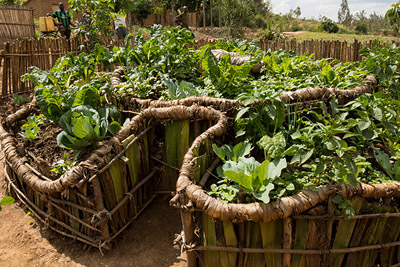
The raised garden helps conserve water and makes weeding a lot easier!
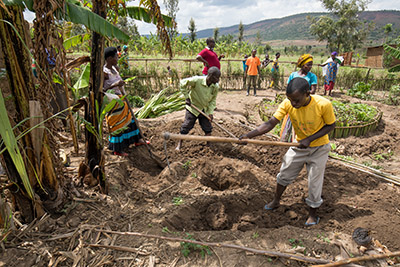
Members of the PROMISE group learn how to make a Mandala or “Keyhole Garden” which is a permaculture technique that helps to conserve water and build healthy, fertile soils.
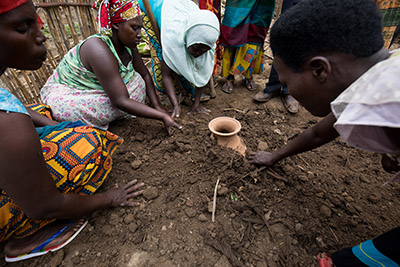
Members of the PROMISE group learn how to use unglazed clay pots in their garden to conserve water.
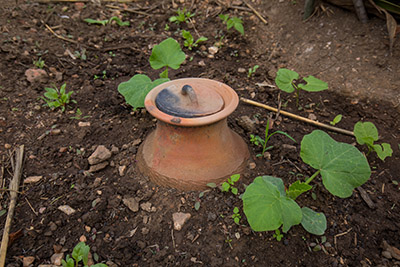
This permaculture technique of using unglazed pots, slowly releases water into the soil to help conserve water in semi-arid regions.
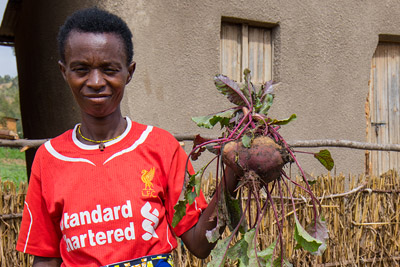
Odette shows off one of the beets that she has grown in her kitchen garden.
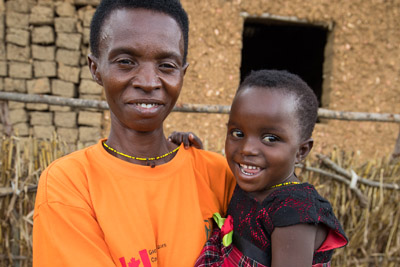
Odette and her daughter who has gained a lot of weight on the new diet that includes greens and vegetables from the PROMISE garden.
Let's make a difference together!
Related News and Stories
- News Releases
- News Releases
- News Releases
- News Releases, Stories